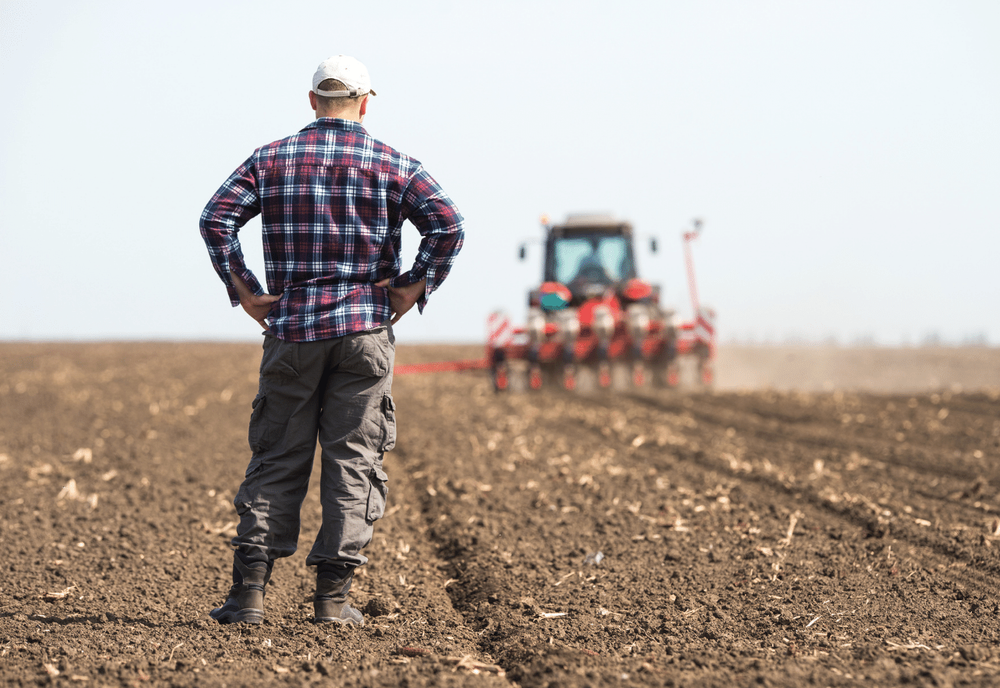Farmers vulnerable as 'tractor scammers' take millions
Laura Williams
13 October 2022, 8:20 PM
 Young farmers have been found to have been hurt the most in the scams.
Young farmers have been found to have been hurt the most in the scams. New figures show that agriculture has become a key target when it comes to scams, prompting fresh warnings about online safety for farmers.
Aussie farmers have reported losing more than $1.2 million to ‘tractor scammers’ within the first eight months of the year.
According to the Australian Competition and Consumer Commission (ACCC), the most reported categories were classified scams and online shopping scams, where fake online sales for tractors and heavy machinery were some of the most common scams.
NSW Farmers Rural Affairs Committee chair Deb Charlton said that the amount scammed from farmers in 2022 is well on it’s way to exceeding previous years.
“We don’t know the full impact of scams because a third of victims don’t ever report it, but of the 292 reports of agriculture scams from January to August, 219 involved tractors or machinery,” Mrs Charlton said.
On average, tractor scam victims lose more than $16,000 with young farmers from NSW being the hardest hit.
“This is a really stressful time for farmers with the terrible weather, high input costs and supermarkets trying to keep prices low, so to lose money to a scammer is just unthinkable,” she said.
ACCC Deputy Chair Mick Keogh said that the increase of machinery purchased online has left farmers vulnerable.
“Scammers are ruthlessly luring farmers and rural businesses with seemingly good online deals on tractors and other farm machinery through fake websites or bogus classifieds on legitimate platforms and publications,” Mr Keogh said.
“Scammers are highly sophisticated in the ways they impersonate a business – some fake websites have ABNs for instance - which is why we are urging farmers and business owners to be alert to the scam risks and do extra checks to avoid getting caught out,” he said.

Doing real-world homework on an online seller is recommended as a way of avoiding scammers.
The ACCC has advised that independently verifying the existence of a business is best practice, by searching the address of the business or calling a nearby business to confirm their legitimacy.
“Many scams can be revealed by doing an internet search of the exact wording in the ad. Never click on a link provided to you by the seller or pay upfront - even if you are promised the money is refundable. Ask to pay at the time of delivery or pickup,” Mr Keogh said.
“If possible, inspect the machinery in person or via live video first. Scammers will often have an excuse as to why machinery can’t be inspected in person and that is a red flag for any buyer.”
“Scammers may advertise machinery at lower prices than the typical market rate. As always, if it looks too good to be true or if you feel pressured in any way, chances are it’s a scam,” Mr Keogh said.
Mrs Charlton said that tractors aren’t the only scams farmers are finding themselves in the middle of.
“We’ve also heard about fake invoice scams costing farmers more than $320,000 this year, so make sure you double check details even on invoices you’re expecting,” she said.
“At the end of the day there are crooks out there trying to take your hard-earned (money), so take a little extra precaution and stay safe,” Mrs Charlton said.
If you have provided personal information and you are concerned you have been scammed, contact IDCARE immediately.
Businesses, regardless of whether they have lost money, are encouraged to report scams and learn more about how to get help on the Scamwatch website
JOB LISTINGS




